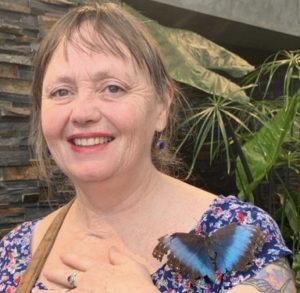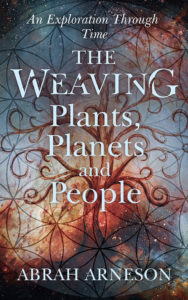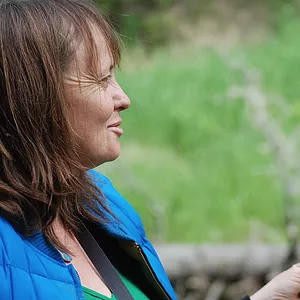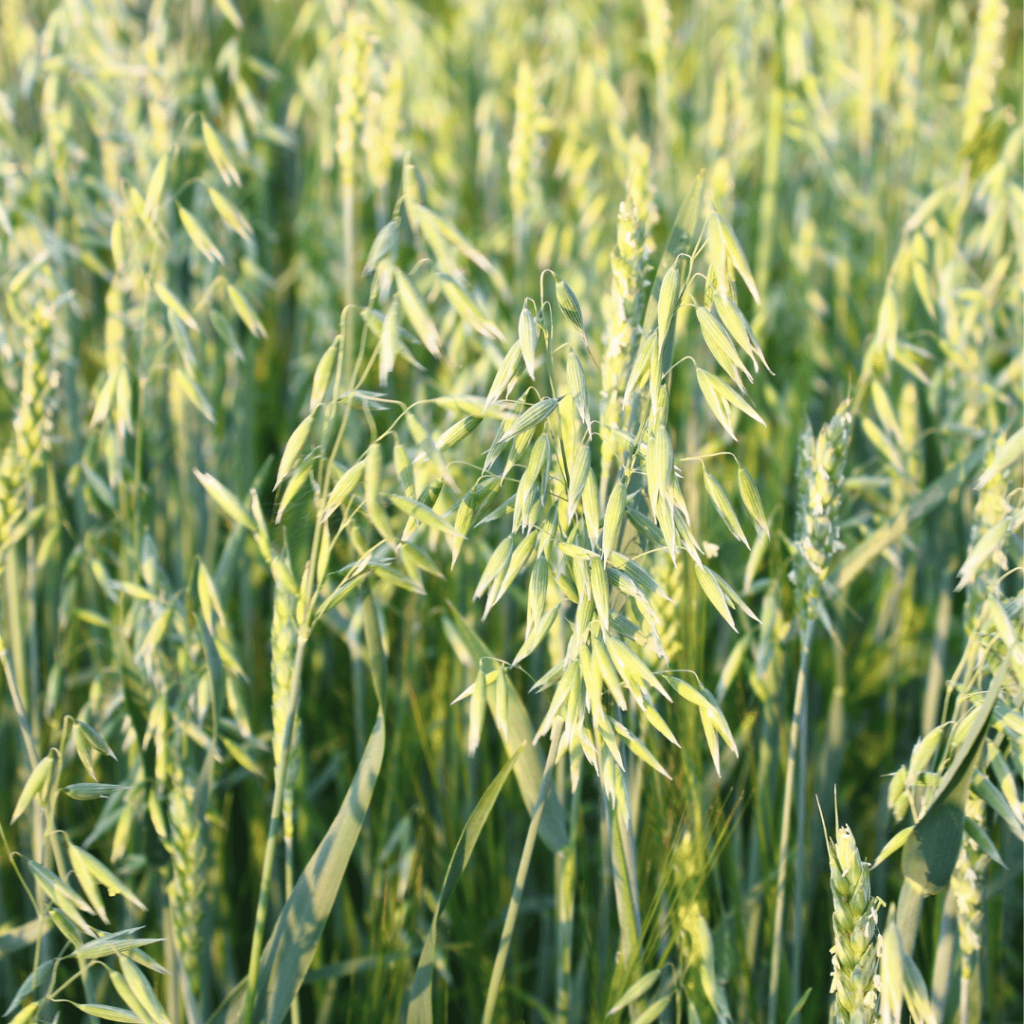- By: Maddie Laberge
- September 19, 2021

8 Essential Tips for Aspiring Herbalists: A Guide to Success
Embarking on a journey as an herbalist is a rewarding and fulfilling path, but it comes with its own set

Interviews
“We are only well when our whole community is well. And that’s the truth.” -Abrah Arneson
Dionne Jennings, Communications Manager for Wild Rose College, had the opportunity recently to sit down and interview Clinical Herbalist, Herbal Mentor, Poet, “Dharma Bum”, and Author Abrah Arneson.
 Author of The Weaving: Plants, Planets, and People, Abrah speaks to so much more than herbal medicine. Their conversation turns to themes of women in folk medicine, magic, hunger, belonging, colonization, vibrational medicine, planetary archetypes, and of course, herbs. Here is a brief excerpt of their conversation (watch the full interview here).
Author of The Weaving: Plants, Planets, and People, Abrah speaks to so much more than herbal medicine. Their conversation turns to themes of women in folk medicine, magic, hunger, belonging, colonization, vibrational medicine, planetary archetypes, and of course, herbs. Here is a brief excerpt of their conversation (watch the full interview here).
Dionne: “I want to talk to you about your book today. [You’ve taken us] into a realm where we’re still talking about plants and herbs and all the good juicy things, but this isn’t what we would call a traditional herbal in the way we might think of it in the Western sense… where we have the monographs and the actions and the chemistry and the energetics. This is all story-based, it’s very non-linear and yet perfectly sensible and very accessible.”
Abrah: “It’s magical, too. I was looking for the language of European herbal medicine beyond the humoral system. I was looking for the language of the women who were herbalists in Europe. I looked at the relationship between the stars and the planets and hoped to uncover some of that rich female tradition of European herbal medicine. That essentially, for the most part, is lost.”
Dionne: “We often don’t study folk tradition as much. Like the plants used by women, and in communities that were used and shared and passed down through the generations. The academics and the women were not always on the same page.”
Abrah: “For example, the only person who wrote about the menstrual cycle was Pliny the Elder. I write about his writing in The Weaving because it’s really horrific what he writes about a woman’s moon time, but there is no written record of hormonal irregularities– they [just] didn’t write about it.
[For hormonal/women’s issues] You went to the woman down the road, or the midwife. The first people who disappeared were the midwives and midwives still have a hard time. As do herbalists in some places. [Herbal medicine is now often treated with suspicion] unless you go into the Indigenous community where people respond, “Oh!”; there’s a response there. Or you go into the Asian community or to the South, like Mexico. So it’s really, sort of, the settler who doesn’t respond to plant medicine with joy, but with suspicion.”
Dionne: “The suspicion is true. If you’re two or three or four, maybe five generations here and then you’re removed from those traditions, then you are very steeped in that mainstream medical model.”
Abrah: “And the answers are in our hearts: our bodies carry the memory. Our bodies are of Earth. The Earth is the memory keeper. We’re connected. 15% of our DNA is tree DNA. It’s very cool. We don’t have to be different from who we are.
Also, a big part of the book is about bringing forward gifts. Because gifts are made for giving.”
Dionne: “As the name alludes to, there’s a big conversation and awakening and learning, relearning, and understanding of what colonization is. That colonization is built into all of our systems. What are the effects of colonization and what role do we have to play within it? There’s this longing: where do we connect back to our ancestral culture, traditions, and plants?”
Abrah: “Colonization for me has two words: greed and violence. When you’re raised in a colonized mindset, we believe we’re entitled to have what we deserve and our privilege is our divine right. And, if someone is in our way, they need to get out of our way, because that’s what we deserve. That’s colonization; not caring in a deeply tender way about everything alive around you.”
Dionne: [Part of colonization is] “People thinking, ‘We’ve got to take all we can get, because we don’t know when we’re going to get more. Or someone else is going to come and take it first.’”
Abrah: “The settlers come from ancestors that were hungry. They left their lands because of hunger. There’s a deep hunger within the settler ancestry; a very deep hunger. I really tried to write about that hunger in the book and how that hunger drives the settler people of this continent.”
Dionne: “Now that hunger is transformed into [a] hunger for that connection to what it is that we love.”
Abrah: “So then the cultural appropriation begins… exactly right.”
Dionne: “[Settlers are] starving for that connection, for rituals, for culture; that rich diversity. Being like, “Well, who has it? Who has it now?’ Our Indigenous brothers and sisters are like: ‘Whoa, whoa. We’ve fought with our lives to hang on to what we have. You need to be respectful about how you’re approaching this.’”
Abrah: “What a privilege to unravel this. What a privilege not to stumble around in this belief that because I was born here and the colour of my skin that I deserve to have whatever I want. Maybe we’ll actually have an opportunity to really fall deeply in love with this planet and all the life it supports. But it’s what’s in your heart. If you’re foraging, what’s in your heart? If it’s fear that you’re not going to have enough, then you’re going to take too much or you’re not going to pay attention. The squirrels need those nuts too.”
Dionne: “Yes. I’m not the only one that’s relying on this food or this medicine: you have to consider the whole community.”
Abrah: “Because we are only well when our whole community is well.”
Dionne: “It’s true. We have a journey to undertake. From settler folks who think: ‘I don’t know the traditions of my great-grandparents’. I know that is a big part of the journey and why you wrote the book. Did you come to any insights around that?”
Abrah: “No.”
Dionne: *laughs*
 Abrah: “I’m not there in the land of my ancestors. I’m here. This morning I was sitting and listening to the wind in the trees, and it was like, this is a language I can hear. It’s not the language of my ancestors, but it’s the language of the land I live on. I mostly see myself as a witness of this place. I don’t know what it is like to have lived on the land of my ancestors for hundreds of years. I just don’t know that experience. I never will.”
Abrah: “I’m not there in the land of my ancestors. I’m here. This morning I was sitting and listening to the wind in the trees, and it was like, this is a language I can hear. It’s not the language of my ancestors, but it’s the language of the land I live on. I mostly see myself as a witness of this place. I don’t know what it is like to have lived on the land of my ancestors for hundreds of years. I just don’t know that experience. I never will.”
Dionne: “How did you decide on the plants that you settled on for the book?”
Abrah: “St. John’s Wort I use all the time. Angelica I use a lot: I love Angelica. Vervain is another one. I have this beautiful relationship with Belladonna, Mandrake. There has to be more to it than this story of a black dog and Harry Potter screaming. It’s a magical plant. And nettles totally took me by surprise where it went.”
Dionne: “You’re saying that you didn’t actually come at it with the intention of, ‘this is what I want to share about this plant’, that there was an element of exploration?”
Abrah: “Yeah, what can I find…how does it come together and how does it express that planet’s energy, right? We’re talking about vibrational medicine really. In The Weaving are the vibrations. It’s actually like energy lines vibrating down through the cosmos and infusing the plant. That plant has a particular affinity for that vibration. How does that vibration for good or better manifest in that plant? How can I see that the vibration of Venus is violets? How can I see the vibration of Mars in hops; which doesn’t carry any of the aggressive, hot, prickly energy of Mars… but it’s ruled by Mars, hands down.”
Dionne: “I loved following along through the story, through the chapters, and then the weaving together of the story—whether it was a folk tale or folklore, or mythology. I had a lot of favourite chapters; ‘Ooh, it’s mugwort!’ And then it was like, ‘Oh no, it’s comfrey!’ Every couple of chapters I’d be like, ‘This is my new favourite’. “
Abrah: “That’s what I’m like. I like favourites too.”
Dionne: “So when you’re working with your plants, or with your clients, do you think about the planetary kind of archetypes, the energetic influences? Does that factor in there?”
Abrah: “I’m a clinician. I’m very systematic in my work. I see those with long histories of sickness; the herbalist is the last person they go to. But there’s also that piece where you’re talking to someone and then this plant just comes and you’re like, ‘it doesn’t make sense’. It’s not linear. So it’s that step between stepping in and out of the linear, the wave and the particle, like working back and forth between them. I often want to know someone’s birthday, so I know their sign. I find that really helpful. I think about the plants, but it’s also the planets. You can use it also as a language of energetics as well. Jupiter rules the liver, and you can see Jupiter really. Like the liver is a very generous organ, it’s ‘to live’. And it likes to live. If someone’s super generous, you can give them more of a Saturn plant to stabilize them better.”
Dionne: “What’s the energy of Saturn, would you say?”
Abrah: “Saturn is about our limits. Saturn is the floor the child learns to walk on. There is the other side of it. There’s always what’s under the floor or on the other side of the wall. So: limits.”
Dionne: “What is it that you want people to take away about the plants specifically after reading your book? What would you hope for?”
Abrah: “Oh, that there’s so much more than you think. Just be really curious… like, what are these living beings? Who are you? Don’t try to pin them down. Anyone who gardens knows you can’t pin down a plant!”
Dionne: “If you’re hoping to ignite people’s curiosity about plants and to encourage them to dig deeper and peel back the layers and see where all these things interconnect and intertwine, I think you did a great job. It’s a nourishing read. It’s not a book for the mind. It’s a book for the heart. And we need to nourish our heart in these times so we can do the work.”
Abrah: “Right.”
Dionne: “What is it that you want people to take away or have the experience of reading from this book?”
Abrah: “Self-empowerment. The sense that they have the medicine inside themselves, that they don’t have to reach outside themselves to find their medicine and that the medicine is available around them. They just have to trust that they come from somewhere and that they belong somewhere.”
I want people to walk away feeling connected to life, woven into life, and have confidence in life. That we don’t have to walk in fear. That’s what I want, but I also want people to walk away with more questions than answers.”
 Abrah is a Clinical Herbalist with a practice in Ottawa, ON, where she specializes in working with chronic viral & bacterial infections such as Lyme Disease. Abrah lives and nurtures a medicine garden across the river in the beautiful Gatineau Hills of Quebec. She is author of The Weaving: Plants, Planets, and People, & The Herbal Apprentice.
Abrah is a Clinical Herbalist with a practice in Ottawa, ON, where she specializes in working with chronic viral & bacterial infections such as Lyme Disease. Abrah lives and nurtures a medicine garden across the river in the beautiful Gatineau Hills of Quebec. She is author of The Weaving: Plants, Planets, and People, & The Herbal Apprentice.
Learn more about and order “The Weaving” here: www.abraherbs.com/books/ or on Amazon here

Embarking on a journey as an herbalist is a rewarding and fulfilling path, but it comes with its own set

Unlocking Vitality: A Holistic Approach to a Spring Cleanse – is your guide to a holistic spring cleansing, inspired by

Milky Oats: The Best Herb for Self Care In our fast-paced world, self-care is essential for maintaining balance, resilience, and